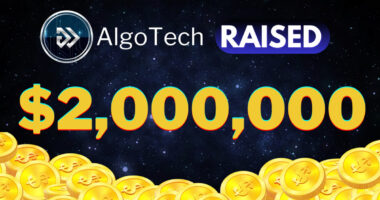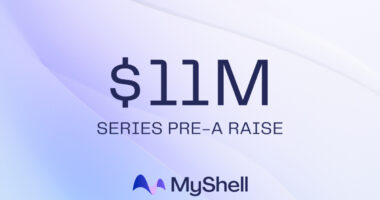Chipotle Mexican Grill shares crashed over 13% in after-hours trading following management’s decision to lower sales forecasts again. The fast-casual restaurant chain reduced its same-store sales outlook for the third straight quarter. Executives blamed declining customer traffic as the primary factor hurting performance.
A lead financial analyst at Hash X Capital examines what this persistent weakness signals about consumer spending and the broader restaurant industry.
Sales Projections Deteriorate Further
Management now anticipates that fiscal 2025 same-store sales will decline by a low single-digit percentage. This marks a dramatic reversal from February, when leadership projected low to mid single-digit growth. Quarterly revenue came in below Wall Street forecasts as customer visits weakened more than anticipated.
Same-store sales track performance at locations open at least one year. This metric provides crucial insight into underlying business health. The repeated downward adjustments suggest Chipotle confronts fundamental demand problems rather than temporary disruptions.
The company’s struggles appear particularly noteworthy given its historically strong brand equity and devoted customer base. Chipotle built its reputation around higher-quality ingredients compared to traditional fast food competitors. Customers historically accepted premium pricing in exchange for perceived quality advantages.
Industry Faces Mounting Headwinds
Chipotle’s difficulties mirror broader pressures affecting the restaurant sector as consumer spending moderates. Inflation has squeezed household budgets, especially for lower and middle-income families who historically drove fast-casual traffic. These customers are pulling back on discretionary dining expenditures.
Price increases implemented across the industry to offset rising labor and ingredient costs have dampened customer demand. Diners increasingly view restaurant meals as discretionary expenses that can be eliminated when budgets tighten. Competition has intensified dramatically as chains battle for a shrinking pool of available spending.
Digital ordering platforms and delivery applications make it easier for consumers to compare shops between restaurants before deciding. Customer loyalty has eroded as switching between brands becomes more convenient. This dynamic pressures all restaurant operators but especially those positioned in the middle market segment.
Financial Results Disappoint
The shift from expected growth to actual contraction represents a swing of several percentage points in the forecast trajectory. This magnitude typically indicates either significant macroeconomic deterioration or company-specific execution failures. Revenue shortfalls beyond same-store sales declines suggest new restaurant locations aren’t performing as anticipated.
Operating profit margins face pressure from the combination of sales deceleration and persistent cost inflation. Labor expenses remain elevated while food commodity costs fluctuate with agricultural market conditions. Without sales growth to spread fixed costs across, profitability suffers materially.
Chipotle has pursued aggressive unit expansion with numerous new restaurant openings in recent years. Weaker-than-expected performance at these newer locations compounds the traffic challenges facing established restaurants. The company may need to fundamentally reassess its expansion strategy.
Stock Reaction Proves Severe
The 13% after-hours plunge erased billions in shareholder value as investors reacted to disappointing results. The stock had maintained relatively well earlier in 2025, making the sudden reversal more painful. Extended trading often produces exaggerated price movements that moderate during regular sessions.
However, the magnitude suggests that substantial selling pressure will likely continue when normal trading resumes. Options market activity probably reflected both existing shareholders’ hedging positions and speculators’ betting on further declines. Other restaurant stocks declined in sympathy trading as investors extrapolated Chipotle’s challenges industry-wide.
The sharp drop raises broader questions about valuations across the restaurant sector generally. If Chipotle’s problems prove systemic rather than company-specific, industry peers may face similar pressures. Consumer discretionary stocks broadly could experience rotation if spending weakness continues spreading.
Leadership Credibility Questioned
The third consecutive forecast reduction damages management credibility with investors who depend on reliable guidance. Repeated negative revisions suggest either overly optimistic internal assumptions or rapidly deteriorating external conditions. Either explanation generates concerns about the leadership’s ability to accurately assess the business trajectory.
Management may have overestimated the effectiveness of menu innovations and marketing initiatives implemented recently. Alternatively, consumer spending could have weakened faster than anyone reasonably anticipated. Transparency about the underlying challenges becomes critical for preserving investor confidence going forward.
The company needs to clearly articulate whether current difficulties represent temporary headwinds or structural changes in the business. Different problems require different solutions and carry different implications for long-term shareholder value. Investors require this clarity to make informed portfolio decisions.
Consumer Behavior Evolving
Shifting preferences may explain some traffic weakness as younger consumers increasingly prioritize value and convenience above other factors. Chipotle may be perceived as less competitive in these dimensions despite quality advantages. The rise of meal kit delivery services and improved grocery store prepared foods provides attractive alternatives.
Economic uncertainty encourages trade-down behavior with consumers shifting toward lower-priced dining options. Fast-casual chains like Chipotle face pressure from multiple directions simultaneously. Traditional fast food operators have upgraded menu quality while other fast-casual concepts have expanded aggressively.
Digital ordering platforms have empowered consumers to easily sample different restaurants without traditional loyalty constraints. This fragmentation makes it harder for any single chain to maintain consistent traffic patterns. Regional and local concepts have proliferated, offering authentic alternatives to national chains.








